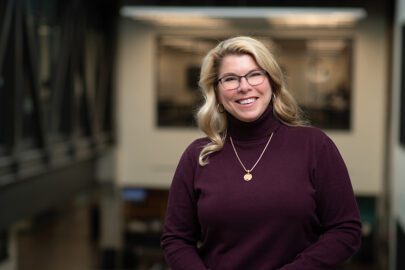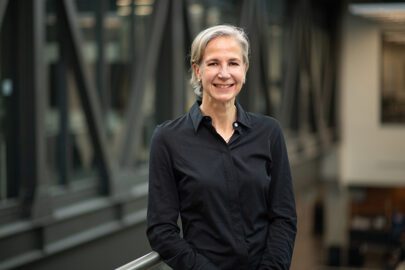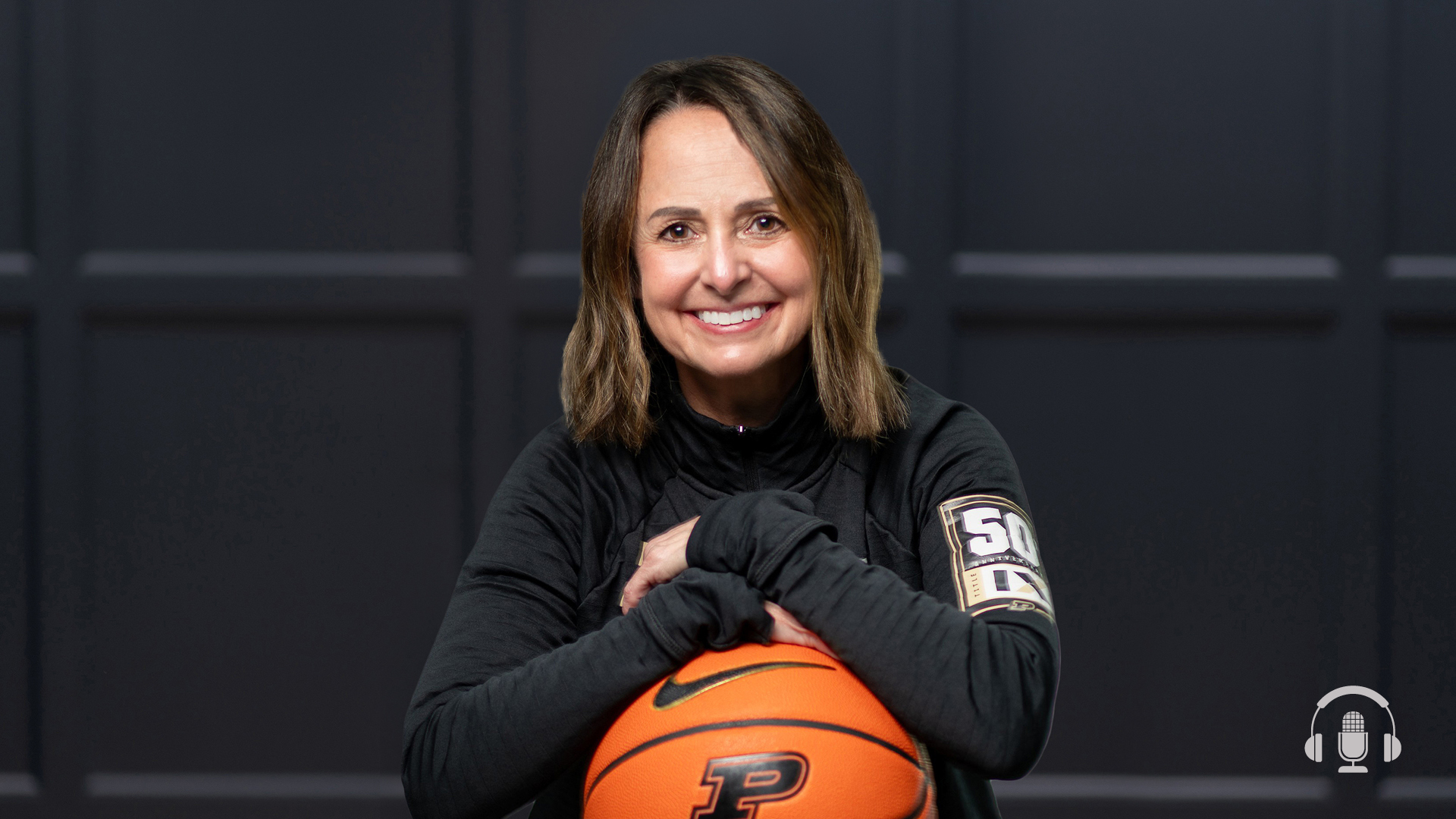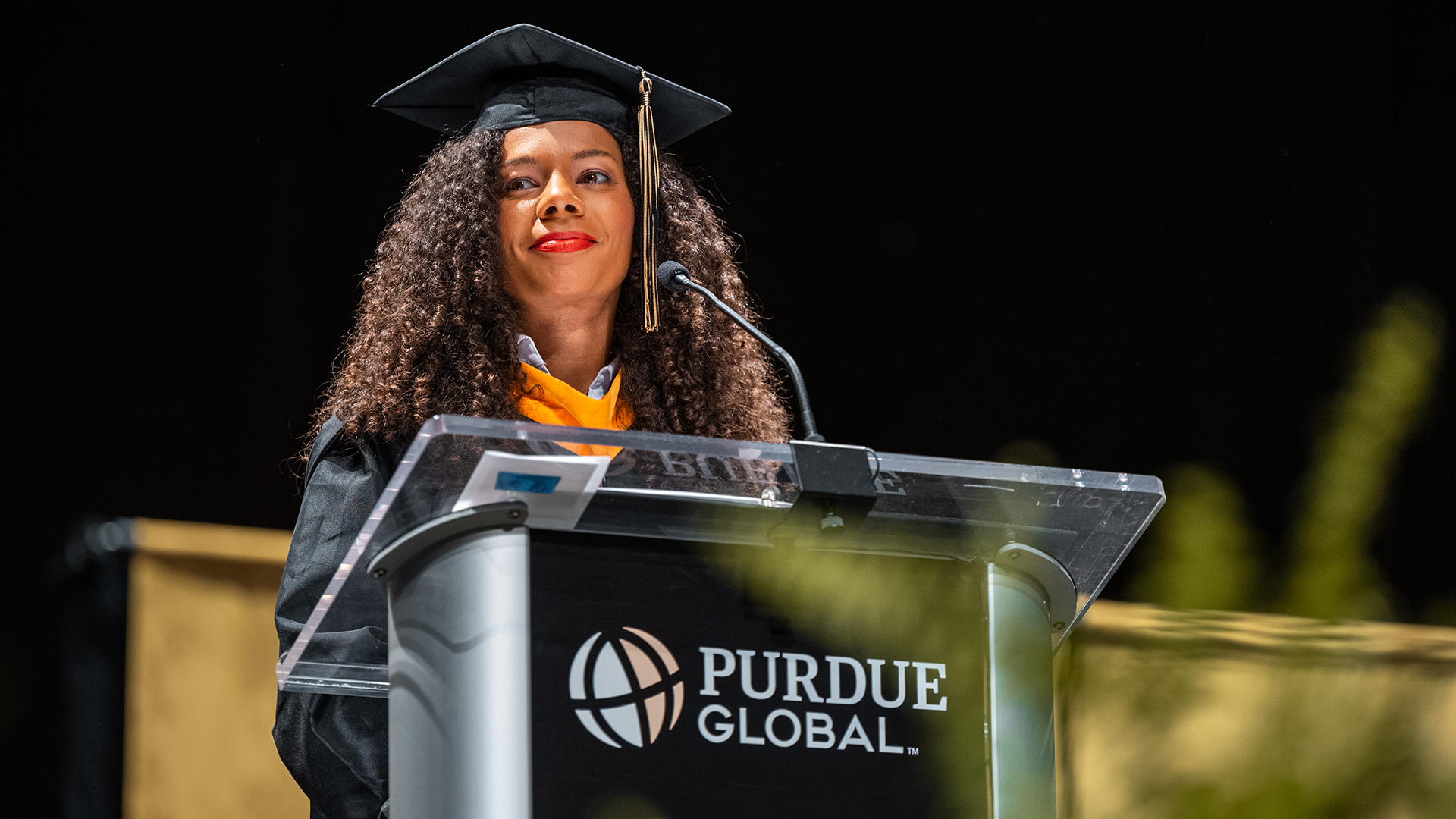Sociology lecturer empowers students to use their resources critically
2021 Excellence in Instruction Award for Lecturers: Lindsay Hamm
Students in Lindsay Hamm’s introductory sociology courses are told to “Google everything!” Hamm, a lecturer in the Department of Sociology, teaches her students to use their resources critically, a skill that they retain after their time at Purdue. Her philosophy is that in five years, her students won’t refer back to slides from a class or an e-textbook they rented, but they will remember how and where to look for accurate information to support an argument.
“All of us have constant access to the internet,” she says. “We probably always will in our work and social spaces between smartphones, laptops, tablets, and whatever we develop in the future. I decided early in my teaching journey that I didn’t want to ignore this reality. Instead, I want students to practice using what we have to make the best arguments they can. We have access to so much information! I want students to be able to sift through it to find what they need.”
Hamm, who began teaching at Purdue in the fall semester of 2017, recently received the Excellence in Instruction Award for Lecturers.
In addition to Introduction to Sociology, she has taught classes on criminology, social problems and hate and violence. She’s taught an introductory course in the Cornerstone Integrated Liberal Arts program five times. Most of the students in Hamm’s courses are early in their career at Purdue. Some are undecided on their major, and many are unfamiliar with discussions around race, class and gender.
A student enrolled in Hamm’s hate and violence course said that she “facilitates great class discussions and does a notably impressive job with talking about the dark and violent topics from our class with grace, dignity and respect.”
Continual improvement of courses
During the early days of the COVID-19 pandemic in March 2020, she helped lead a seminar on how to “put your class online” for instructors in the sociology department.
“How do you take something that you’ve only conceptualized in person to something similar, or even better, on an online platform?” Hamm says. “We wanted to stress that giving students more work because they wouldn’t be sitting in a classroom was not a student-centered approach. Instead of learning more, students were probably just going to be overwhelmed by additional readings and assignments.”
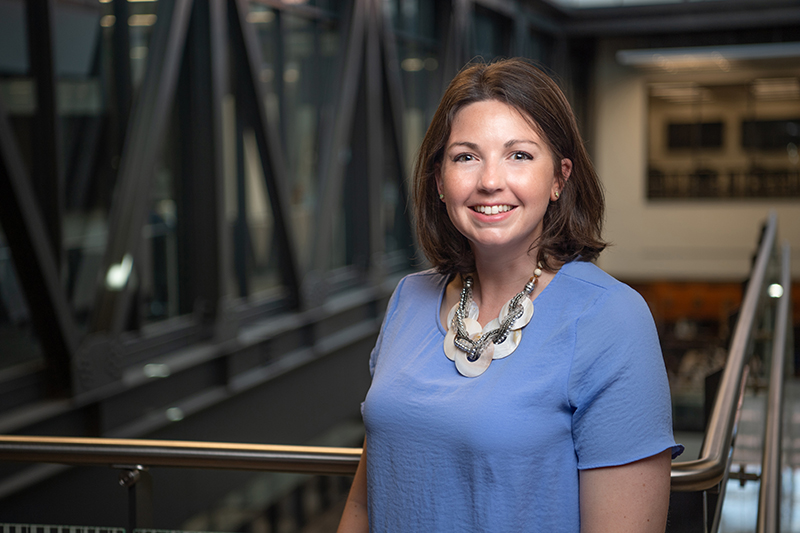
Key to Hamm’s continual improvement of her courses, and how she’s able to help other instructors, is empowering her students by asking for their feedback on how aspects of the courses help them learn the material. Her students have consistently called her enthusiastic, empathetic, organized and innovative. The Department of Sociology’s survey of undergraduate students found that 78% of all students who reported taking a course with Hamm identified her as an outstanding instructor.
Neural network-enabled grader
In the past three years, Hamm has been at work on her most innovative teaching project yet: a neural network-enabled grader. Her team is working to build this artificially intelligent grader, called Charlie, which will offer feedback for students in Purdue’s peer-review Circuit software.
“We feed Charlie essays that I and my research and teaching assistants have graded to train Charlie on a particular rubric,” Hamm says. “In spring 2020, we fielded Charlie in Circuit in my Social Problems class. Charlie would give students a predicted score before they turned in their final draft. We surveyed students before and after their experience to see how they felt about AI in the classroom generally and then about working with Charlie.”
Hamm and her team found that students were interested in what Charlie could add to the learning environment and wanted it to give more specific feedback. They are now working on getting Charlie to give more detailed feedback on a rubric level so students know what to improve on their drafts. She will be working also with the Purdue Writing Lab to see how Charlie can help reach more students and improve communication between course instructors and tutors in the lab.
Hamm’s favorite part of teaching is working with her students to “figure out how sociological tools can help them better understand the world and achieve their goals.”
“I love the interactional nature of teaching,” she says. “It’s not just me putting a bunch of stuff I know into a lecture or assigning things I find interesting for students to read. It’s about coming together from our different social locations and life experiences to help make sense of structural issues and personal troubles.”
